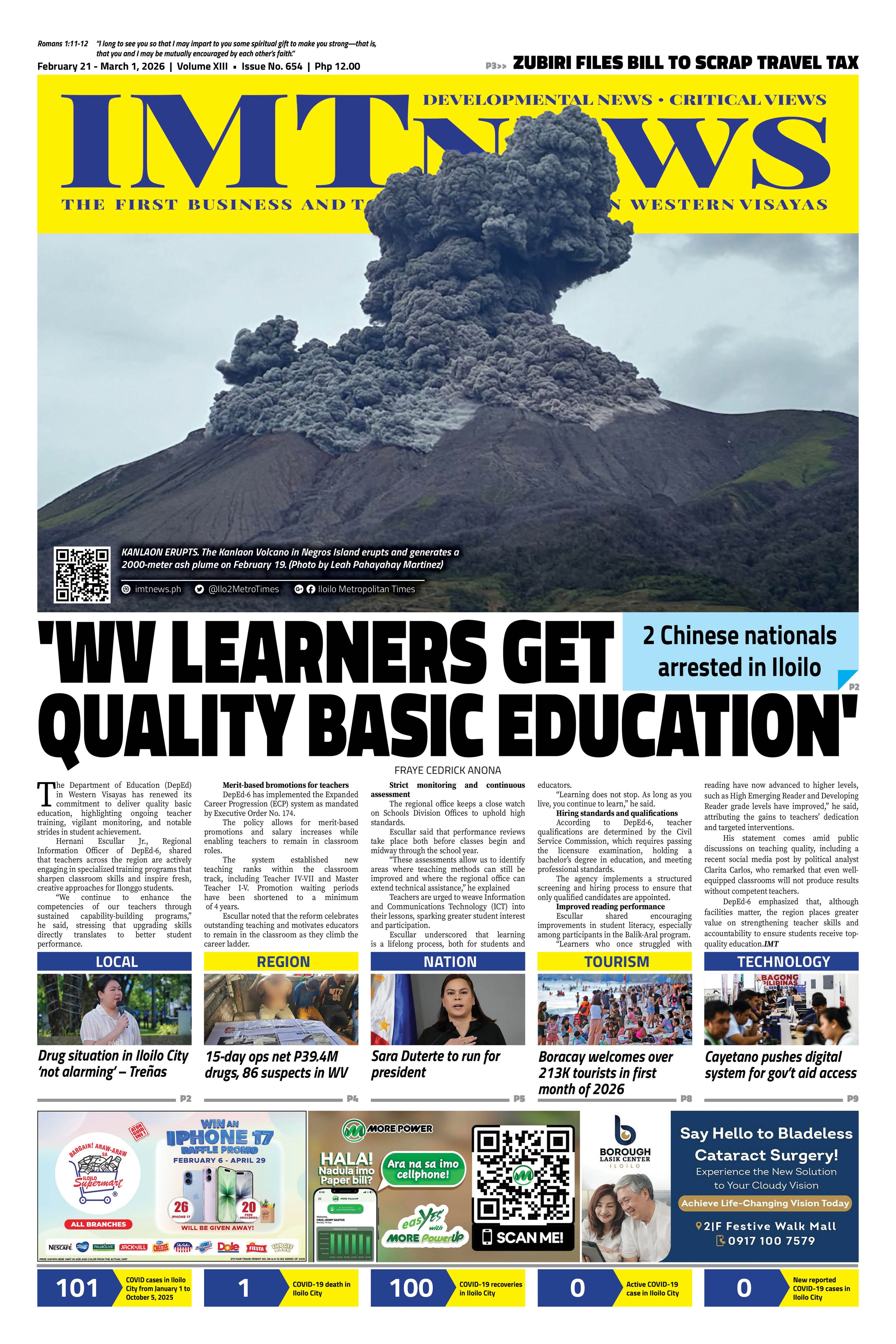There is a strange quiet surrounding HIV in Western Visayas. When monkeypox hit the news, it caused a brief stir. But HIV, which has been spreading slowly and silently for years, barely draws attention. It is not as sensational, but it is far more dangerous—and much closer to home. In Iloilo alone, over 2,000 cases have been recorded, the highest in the region. The silence feels less like restraint and more like quiet resignation.
In the focus group discussions and interviews I recently led on teenage pregnancy for a policy initiative in two Iloilo towns, I expected to hear about early motherhood, peer pressure, and stigma. And I did. But running beneath the surface was another, quieter concern: unsafe sex, little understanding of HIV, and a clear absence of information about protection. At barangay centers, teens were more comfortable talking about celebrity breakups than their own sexual health. That discomfort was telling.
The numbers paint a stark picture. The Department of Health reports 296 new HIV cases in Iloilo in 2024 alone. Most were men aged 25 to 34, with male-to-male contact as the main mode of transmission. Yet unlike mpox, which drew headlines, HIV continues to spread in a quiet void—shielded by shame and stigma.
Many public school teachers, health workers, and youth advocates—the ones who often carry the weight of educating our communities—quietly admit they struggle to talk about HIV. Some feel they lack the right training. Others worry about being judged or getting pushback for being “too bold.” But the urgency is real. According to the Department of Health, HIV cases among Filipinos aged 15 to 25 have recently spiked by 500%. That is not just a statistic—it is a warning. In our conversations, teens spoke openly about having multiple partners, not using protection, and not knowing what PrEP even is. What was once whispered about in private has become part of everyday behavior, yet the knowledge to keep them safe has not caught up.
This is not just about awareness—it is also about access. In one town, a student asked quietly, “Where can I get tested without anyone seeing me?” That one question reflects what many feel. Health centers may offer free testing, but judgment is still the price. A boy asking for condoms is often labeled too young or immoral. These are not policy failures; they are empathy gaps.
The Iloilo Provincial Health Office’s “Take the Rights Path” campaign, with its striking red ribbon display in Concepcion, sends a strong message. But real help must follow the symbolism. Head of Health Service Delivery Division’s Dr. Rodney Labis shared that only 46 percent of HIV cases in Iloilo have been diagnosed. That leaves thousands unaware they are infected—and still possibly spreading the virus. How many of them are our students? Our neighbors?
Hotspots like Pavia, Oton, Pototan, and Santa Barbara are not remote areas. They are bustling towns filled with campuses, malls, and nightlife. The same spaces where young people explore freedom are now also places where unspoken risks grow. These towns are proof that development without awareness can backfire.
What adds urgency is the overlap between teenage pregnancy and HIV risk. Our fieldwork suggests many teens are having unprotected sex without realizing the risks—of both unintended pregnancy and lifelong illness. Yet most interventions still focus only on the former. There are talks on abstinence and nutrition, but not a word on viral suppression or HIV prevention. It is a glaring omission.
We need a broader shift in how we handle these issues. Reproductive health is not a one-time lecture—it is a continuous conversation. It means training teachers to listen without judgment, allocating real support to local programs, and giving young people space to ask hard questions without fear. It means seeing them not as problems to fix, but as people to walk with.
HIV is patient. It hides, adapts, waits. Healing must do the same. It starts in quiet courage—a teacher sliding facts into a lesson, a health worker gently explaining PrEP, a guidance counselor keeping free condoms on hand. These may seem small, but they are acts of transformation.
Like the virus, empathy spreads silently too—but with far better consequences. It shows up when we stop pretending everything is fine and start having honest conversations. When we replace shame with support. The numbers may be discouraging, but we still have the power to change the story.
The signs are already here. In a mother’s grief. In a student’s silence. In a teacher’s uncertainty. Western Visayas does not lack effort or data. What it needs now is the courage to speak the truth: HIV is not someone else’s problem—it is ours. And until we face it that way, the silence will keep winning.
Doc H fondly describes himself as a ”student of and for life” who, like many others, aspires to a life-giving and why-driven world grounded in social justice and the pursuit of happiness. His views do not necessarily reflect those of the institutions he is employed or connected with.






